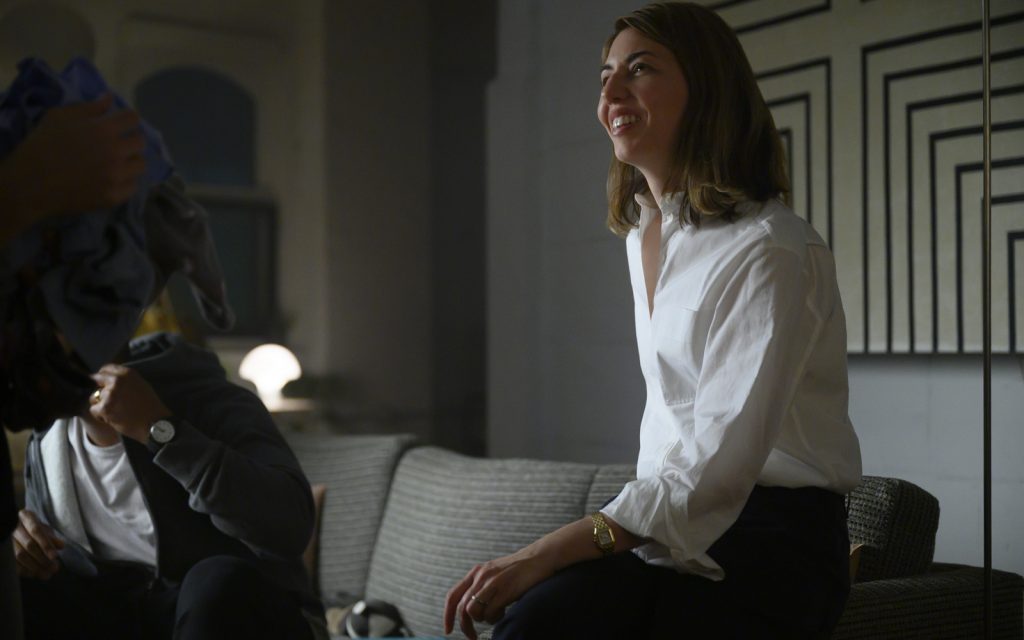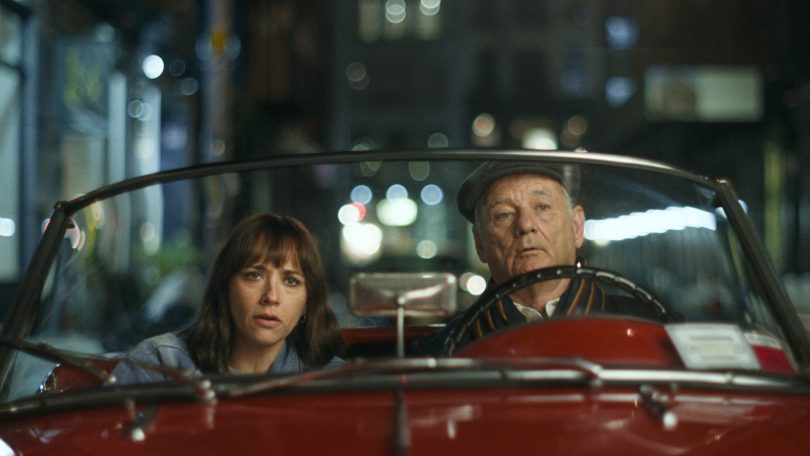By Anoushka Dalmia
BU News Service
Who hasn’t considered, at one time or another, their relationship with a parent to be on the rocks?
In her latest cinematic exploration of the human condition, director Sofia Coppola explores her protagonists in a father-daughter relationship that has been strained with wounds inflicted over time. A strong premise like that in the hands of an experienced filmmaker like Coppola is intriguing. She has the unique ability to instantly pull you into the closed universe of her characters. Her portrayal of seemingly inconsequential experiences that each of us have can be very moving.
But her latest lacks the perceptiveness of her previous work. One has high expectations of Coppola to instill depth into mundanity, and her failure to do that colors the viewing of this moderately enjoyable film. She attempts to replicate her successful formula– packaging the unsettling uncertainty of daily life into a neat, clean plot– but the result is an age-old and predictable story about urban, elite relationships.
“On The Rocks” opens with Laura (Rashida Jones) questioning her husband Dean’s (Marlon Wayans) fidelity because of his askew behavior in bed. She turns to the females in her life but finding no satisfactory advice; she seeks the word of the person who knows infidelity best– her father Felix (Bill Murray), a man who tore their family apart when he cheated on her mother.
Felix pulls Laura away, and the two embark on a modern-day crusade on the swanky streets of Manhattan to decipher Dean’s recent behavior. Does it reek of betrayal? Along the way, Coppola wonders out loud for us. What will Laura discover about herself and about this self-centered man she calls her father?

There are bizarre aspects that are delightful about “On The Rocks,” and Murray tops that list. The moment a sparkling black car pulls up to Laura’s building and Murray’s face pops out, and it’s clear this eccentric character was written for him and him only. No other male actor on the planet can pull off this role. He makes a tiresome, selfish, vaguely sexist art dealer vivacious, to the point of being endearing.
Felix has misogynistic ideas and spills them out freely, like when he tells his granddaughters to wear their hair long because that’s what boys like. He waves, remarks or flirts at every woman he sees, which causes constant discomfort for daughter Laura. But he cares for his daughter deeply, even though he makes no attempt to curb his hurtful actions.
Murray plays this commonplace complexity with expertise. When he’s eating caviar on a biscuit as he stalks Laura’s husband with her, Murray’s Felix is quietly jubilant. His face breaks into a sob for a moment as he remembers the death of a lover, and then he’s right back at the wheel of his ever-running train of thought. Murray is gold in everything he’s in, and the combination of Coppola’s sharp, honest writing with his curt deliverance is electrifying.
Jones does her best to keep up with Murray’s fast-paced Felix and is convincing as the daughter who’s exhausted by her father, but not enough to walk away yet. We can share moments when she’s uncomfortable; we can share when she’s rolling her eyes at Felix. Coppola has the uncanny ability to put the viewer right at the table with her characters.
The neatness of the plot is appeasing, if a tad unimaginative. Without giving away any spoilers, the film wraps up tightly with a gigantic bow on top. If you, like me, were expecting to ponder over loose ends, hoping for a messier end that wrecks your emotional state and injects a spark of normalcy into your COVID-induced desolation, this will be a disappointing watch.
Any seasoned viewer of Coppola’s character sketches will find it hard to appreciate the offerings of this film. The director’s expertise lies in what her characters reveal even when they hold back, in the moments they aren’t fully present. This is the core of the gentle vulnerability of “Lost In Translation,” arguably Coppola’s masterpiece. In a gigantic city like Tokyo, strange to its American protagonists and audience, the auteur carved out intimacy between the most unlikely pair.
That profundity is sorely missing from her latest film. The protagonists of “On the Rocks” are polished, not just refined, even in their desolation. We’re in on the joke with Laura when she scoffs at Felix’s oddities. Still, we know nothing about Laura and Felix beyond her troubling relationships with the men in her life or the misconceptions about women they hold, respectively.
Is it unfair to compare the two films made over 15 years apart? Laura is a mother of two in her late thirties, stuck in writer’s block. Charlotte is a twenty-something philosophy graduate, hoping to write something of consequence. They’re both stuck, lost, and lonely. Murray’s Felix and Bob are as silly as they’re stoic, baffled by their feelings for the woman in front of them. These works, made by Coppola at corresponding stages in her life, demand comparison!
Moreover, this comparison is crucial to appreciate the moments of nuance that “On The Rocks” has. Laura wants to relearn whistling because Felix likes whistling with her. Felix wants his granddaughters to wear their hair long because boys like that, but he’s proud of Laura’s independence. These instances of delicate depth are noticeable because this is what Coppola is popular for and excelled at in “Lost In Translation.” Without that juxtaposition to guide us, “On The Rocks” would merely be a story about rich, white people’s agony over unremarkable troubles and their insistent inability to find the solutions.
This film’s protagonists don’t exist for long beyond their interactions with the other, which doesn’t build our sympathies with them as individual persons. With Bill and Charlotte in the former film, we have time with each persona in their natural states of being. Even as Coppola doesn’t regale us with information about them, we notice their idiosyncrasies; we find ourselves in these strangers.
“On The Rocks” doesn’t provide that space, this solitude for self-reflection. Even though Coppola attempts to recreate her trademark stillness in some moments– Laura and Felix’s push and pull doesn’t provoke that same inner contemplation. Yes, we all have tricky relationships with our parents, but they aren’t picking us up in vintage cars to stalk our spouses in the middle of the night. This isn’t our life– we might be sitting at the table but someone else has to pick up the tab for that expensive caviar.





